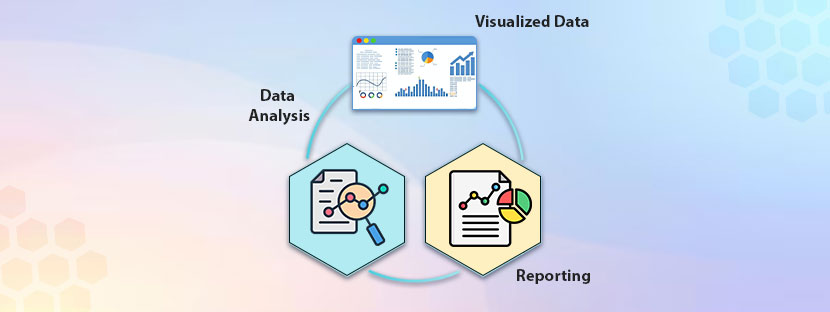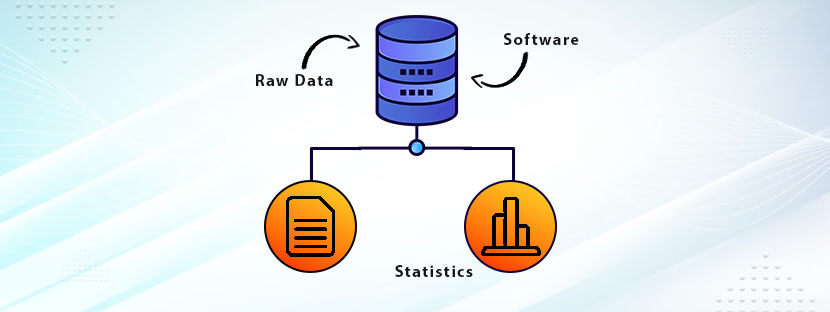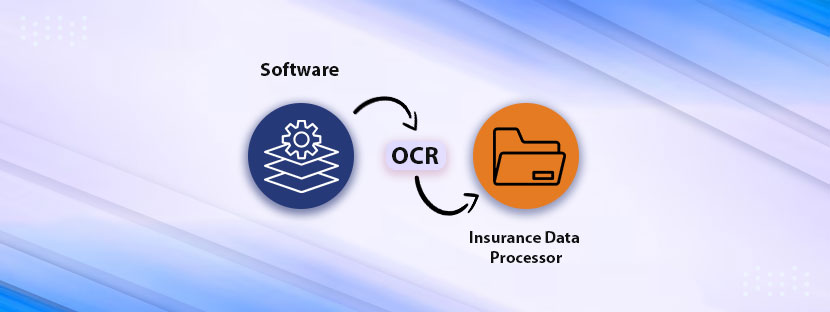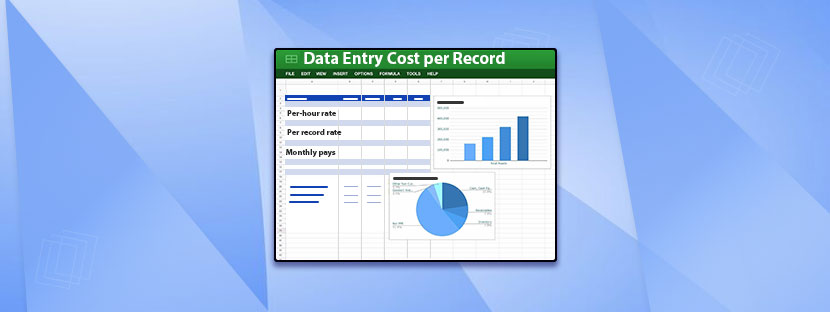Is it your wish to become data-driven and make the best decision for your business? In the modern business world, data is everything like a lifeblood. Businesses hugely invest in data analysis and reporting to gain benefits. But the process starts with data entry where businesses put all data in the database accurately for analysis.
Therefore, if you want to gain the benefits of data assessment then you have to think about the data entry process first. Nowadays, most of the big companies delegate their data entry tasks to outsourcing. Data entry outsourcing helps businesses to accurately manage all data types to initiate the analysis procedure.
Accurately managing all the data types can immensely help in analysis procedures. However, the task of managing the data in an accurate format is a challenging job. Earlier, companies used to hire employees to manage their data entry work but now the system changed a little bit. Outsourcing is the best option that has emerged in the field of data entry.
This blog aims to explain how data entry helps in data analysis and reporting procedures in detail. Besides that, you’ll find a basis comparison between the data entry process and data analysis in this piece.
Let’s start this with the comparison first!
A. Basis Comparison Between Data Entry and Data Analysis
The field of data management is wide where data entry and data analysis are the parts of the same process. Data entry is the primary step to putting the data on the system through manual or automated processes. On the other side, data analysis is a process to churn data to gain insights from it.
Data entry work is more repetitive and thus high level of accuracy is a must for this kind of job. In this work, the professionals have to handle huge volumes of work within a specific time. Besides that, they need to have the skill to convert documents into various formats to help in data assessment.
In contrast, data analysis and reporting jobs need specialized skills in assessing data types. It is more like understanding the voice behind the data, which helps in making the best decisions. The main purpose of data assessment is to drive actionable insights for businesses, which streamlines data analysis process. Therefore, businesses can consider those insights while making robust decisions.
However, you need to focus more on data entry work to get more accuracy while initiating the data assessment process. With accurate data input in the database, data analysts can perform their work better. Outsourcing data entry services offers maximum accuracy in the data entry work and ensures standard quality.
The next section will help you understand the link between data entry and data analysis better.
B. How Data Entry Helps in Data Analysis and Reporting
The connection between data analysis and data entry is direct and visible. Companies that are in the data analysis business always hire the best data entry professionals via outsourcing. Ensuring the quality of data always ensures better and quality assessment of data. Besides this, there are many other ways data entry helps in data analysis which are like this;
1. Putting Data in Accurate Form
Having a database with no errors can make the data assessment process smooth and effective. When you hire a team of professionals for your data entry work then you can expect high accuracy. These professionals have proper training in dealing with data entry work and they can maintain accuracy standards as well. Also, these professionals will maintain the completeness of the data besides accuracy.
Validating data is a crucial step that improves the quality of data as well as eliminates bad data. Data validation is a vital step to authenticate each dataset and ensure completeness of the data. With the best approach to data validation, the result driven by the practical data analysis and reporting will impact more.
Through proper data validation, businesses can determine where in the database the inconsistency lies. Thereafter, an examination will take place to remove all inconsistencies from the database.
Verification, in simple words, indicates the process of matching the datasets with sample ones. To prepare a robust database, data entry experts always prefer to have a data verification process. They usually compare both datasets to find inconsistencies between the processes. Data verification plays a crucial role in minimizing the error percentage and ensuring the reliability of the data.
2. Standardize Data
Data standardization is vital for effective data analysis and reporting. It ensures that information is consistent and comparable and follows an accurate data input process, leading to accurate insights. Achieving uniformity in data is crucial for reliable analysis, as it helps eliminate errors and inconsistencies. By validating data, you ensure its reliability, contributing to overall data quality.
Standardization involves organizing and categorizing data, making it easier to compare and analyze. This organized approach allows for the identification of patterns, trends, and anomalies, facilitating more meaningful insights and informed decision-making. The process of standardization is essential for enhancing the accuracy, consistency, and reliability of the analyzed information.
One significant benefit of data standardization is its role in data incorporation. It ensures compatibility and consistency across different systems and platforms, enabling effective integration. Prioritizing uniformity enhances the overall data analysis and reporting process, ultimately leading to better business outcomes.
The importance of uniformity in data cannot be overstated. It supports practical analysis by providing accurate, consistent, and reliable information. Standardization helps identify and rectify errors, allowing for meaningful insights. Additionally, it promotes compatibility across various systems, contributing to the effective integration of the data. Overall, prioritizing data standardization significantly improves the quality of analysis and reporting, benefiting business decision-making processes.
Ensuring the accuracy of data is essential, and a key way to achieve this is by standardizing information. When you standardize your data, you make it consistent, reliable, and easily comparable.
The first step is implementing data validation through rules and checks to identify and correct errors, ensuring the accuracy, completeness, and integrity of the information. Additionally, reducing errors involves standardizing the format, structure, and terminology, using consistent codes, labels, and units of measurement.
This not only improves accuracy but also streamlines data analysis and reporting processes. Standardized data facilitates integration from various sources, making it simpler to share and collaborate on information. Ultimately, this enhances decision-making by providing a reliable foundation for understanding and utilizing data effectively.
3. Consolidate Every Data Type
When it comes to handling data, using data entry services can make things a lot easier. These services help you gather and organize information from different places, saving you time and making your data more accurate. Consolidating your data means putting it all together, giving you a complete picture of what you have. This makes analyzing and reporting on it much simpler.
The data entry process can make collecting and organizing data a breeze. They automate the process, saving you time and effort. This way, you can focus on important tasks like analyzing and reporting data. These services use techniques to check if the data is correct and reliable.
They’re pros at handling large amounts of data and fixing any mistakes or differences in the information. Data entry also helps you bring together data from different sources into one complete set. This saves time, makes sure the data is good and makes reporting easier.
Following an accurate data input process can make the consolidation process efficient. Checking if the data is right is a crucial step in data analysis and reporting. Data entry specialists go through the data carefully, checking it against other sources to find and fix mistakes. This process helps get rid of any errors, reducing the chance of wrong analysis and reporting.
Consolidating data is key to boosting accuracy too. It means putting data from different places into one organized format. This makes it easier to analyze and report, giving you a better understanding of making decisions. By letting data entry outsourcing services handle these tasks, you can cut down on errors and make your data much more accurate.
II. Making Data in Correct Order
Data entry processes are a big help when it comes to getting your data in order. They use automation to collect and organize data, which saves you time. This automation also ensures that the data is accurate and reliable. These services are pros at dealing with a lot of data, making sure it’s consistent and error-free.
They bring together data from different sources, making it easier for you to initiate practical data analysis and reporting procedures. This consolidation not only saves time but also improves the overall quality of your data.
4. Improving Accuracy with Data Entry
Data entry plays a crucial role in making your data more accurate. They carefully review and verify the data, making sure it matches up with other sources. This helps catch and fix mistakes, reducing the risk of wrong analysis and reporting. Data consolidation is another way these services boost accuracy.
Organizing data from various sources into a single and unified format helps to initiate the data assessment procedure. This comprehensive view enhances decision-making by providing more accurate insights.
On the other hand, data entry online services simplify the data consolidation process, making it easier for you to collect, organize, and analyze information. These services not only save time but also enhance the accuracy of your data through automation, validation techniques, and careful review processes. By entrusting these tasks to data entry specialists, you can ensure that your data is reliable. Because they will make all data error-free, and ready for effective data analysis and reporting.
5. Initiating Cleansing Process
Data cleansing constitutes a broad part of the data entry process as well as data analysis. Without a clean database, businesses cannot get useful business insights from the analysis procedure. Cleaning the dataset is simply a process of cleaning the database to generate effective results. Like data validation and verification, this process follows the same procedures including data integration.
The process of cleansing data involves two min processes; validation and verification. In validation, the data entry experts will validate the accuracy and reliability of the data. For validation, businesses already set a standard of validation for each of the datasets. Setting the standard is crucial for validating datasets as it helps to maintain the accuracy level intact, and streamlines data analysis.
On the other hand, there is the verification process where data entry experts check the completeness of the data. Also, the verification process ensures that there are no blank spaces left in the database. It eliminates data integrity risks. Therefore, you can have a complete database with complete information to initiate the data analysis and reporting process smoothly.
A database with clean datasets helps analysts to integrate different files for data analysis. With the data cleansing process outsourcing, Integrating different datasets helps in comparing things, measuring performances, and other things. Moreover, the risk of duplication will be minimized up to a certain percentage with data integration. Also, businesses can make better decisions with the help of an integrated database.
The process of data analysis is complex and it needs a smooth flow of data to operate. Generally, analysts demand different formats for different kinds of data, which makes the process easy. Therefore, businesses outsource data entry experts to prepare files in different formats to help analysts.
The data analysis and reporting procedure demands different formats for different analysis projects. Therefore, data entry experts extract data from multiple sources and paste them into a spreadsheet to initiate the analysis part. Sometimes conversion between different files becomes hard and you do not have other options rather processing the tasks.
First of all, the identification of the data plays a crucial role in the transformation procedure, besides identifying, you need to find the main database and then initiate the data retrieval procedure. Remember that, the process of maintaining data needs data integration, which enables you to join the main database. This process also covers the data cleansing procedures.
Nowadays, businesses prefer outsourcing data entry services as an easy option to maintain data entry work. Outsourcers can handle the data entry tasks by maintaining all practical data analysis requirements. Therefore, businesses can initiate data analysis and other reporting mechanisms efficiently with the help of data entry experts.











